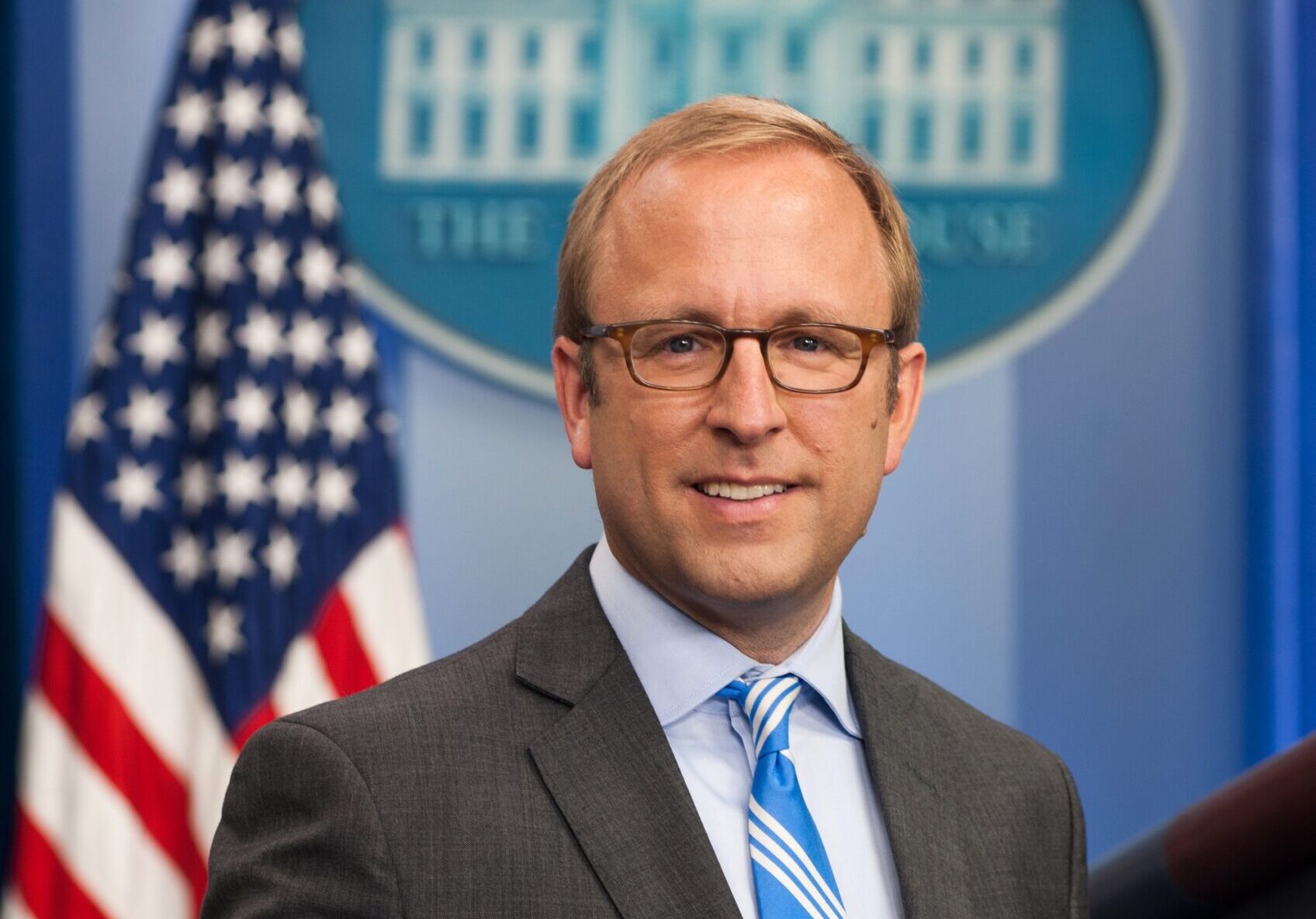‘I’m Not Part of the Resistance’: Jonathan Karl Talks Trump’s Covid ‘Lie’, the Future of the Supreme Court and Media Bias on The Interview

via ABC/Randy Sager
Earlier this month, ABC News reporter Jonathan Karl did something he has resisted doing for the last three and a half years: he asked President Donald Trump why he lied to the American people.
Karl, a veteran White House reporter who also has a history covering Trump that dates back to the early 90s, is well-known as a tough interrogator with a knack for asking uncomfortable questions — no matter which party the subject is from. His hard-hitting exchanges with President Barack Obama and his press shop were standout moments. But that line — calling an untruth a “lie” — is not one that he or his mainstream colleagues often cross.
The premise that Trump lied — as opposed to merely being inaccurate or misleading — rests on a strong foundation: In recorded interviews with Bob Woodward, Trump admitted that he downplayed the threat of coronavirus in order to avoid a panic. He also revealed his private belief that the coronavirus is deadlier than even “strenuous flus,” despite falsely insisting in public that it was no worse.
At a recent White House press briefing, Karl put it to the president directly and bluntly: “Why did you lie to the American people? And why should we trust what you have to say now?”
In this week’s episode of The Interview, I asked Karl — the chief White House correspondent for ABC News, host of podcast Powerhouse Politics, and author of bestselling book Front Row at the Trump Show — what led him to call what the president said a lie.
“I’ve resisted using that word,” Karl said. “I would prefer the readers and viewers of ABC to to make the judgment to you know, I give you the information. You can decide what the intent behind the information was. I will tell you when the president has said something that is not true.”
“We see him saying something, not only that is factually incorrect, which I had pointed out in real time, but something that we now have evidence on tape that the president was fully aware was incorrect. And in such a matter of such monumental importance,” Karl explained. “And then there’s one other factor that led to the question. And that is the tape that Woodward released from March, where the president explains why he lied. He talks about how he didn’t want to panic. That’s why he downplayed what he knew to be the truth.”
Still, Karl said he doesn’t “want to appear like the presidents opposition.”
“I’m not part of the resistance,” he said. “I’m not his political opponents. I don’t want people to see me in there and think I’m just out to get him. But I also have something that is more important than all of those things. And that is that the reporter’s first loyalty must be to pursuing the truth. And part of pursuing the truth is using clarity of language.”
“I wanted to be absolutely clear to make sure there was no question about what had happened,” he added.
Karl worries about the way the press is perceived by Americans in the Trump era. In his book, Front Row at the Trump Show, he dings fellow White House reporter Jim Acosta, of CNN, for his clashes with the president.
“I do believe that, unfortunately, there is a big chunk of the country that believes the press is now the resistance,” Karl said. “And I think that’s really unfortunate. And I think that it’s it has negative consequences for for a free press. I think it has negative consequences for our democracy.”
Karl called one of Acosta’s exchanges with the president “embarrassing” in his book. Now, having seen the way Trump has handled the pandemic, Karl is more understanding of Acosta’s position.
“But I think that the aggressive questioning of the president, particularly now in the wake of what we’ve seen unfold with the pandemic, is absolutely necessary, not only justified, but necessary. And I was quite critical of Jim Acosta. I also believe Jim Acosta is a fine reporter. And I think that things the events that have played out since those early days of the Trump White House have in some ways vindicated Jim Acosta.”
We also spoke about Jeffrey Goldberg’s bombshell report in The Atlantic alleging Trump had repeatedly disparaged Americans who died in war. Karl described Goldberg as “one of the best journalists alive today,” but had reservations about the way the story was received.
The story, Karl pointed out, “was based on anonymous sources and it was quickly challenged by sources speaking on the record.”
“I think that there was an instant accepting, as gospel, what those anonymous sources told Jeffrey Goldberg. Again, I don’t doubt that Jeffrey had sources and told them exactly what he reported. But they didn’t put their names to it. And the people denying what was said did,” Karl said.
At the end of our interview, I asked Karl if his concerns about the media, and the harm done by president’s attacks on the press as the enemy, will subside when the president leaves office.
“I do think that that the pendulum will swing. God, I hope it will. And we will get back to, you know, more normal relations between the press and the people we cover,” he said.
One thing he hopes will return? “The idea that the White House press secretary is a public servant and not a political operative.”
“You are not Baghdad Bob if you are the press secretary for the White House,” Karl said. “If you are, you are undermining our democracy.”
New: The Mediaite One-Sheet "Newsletter of Newsletters"
Your daily summary and analysis of what the many, many media newsletters are saying and reporting. Subscribe now!

Comments
↓ Scroll down for comments ↓